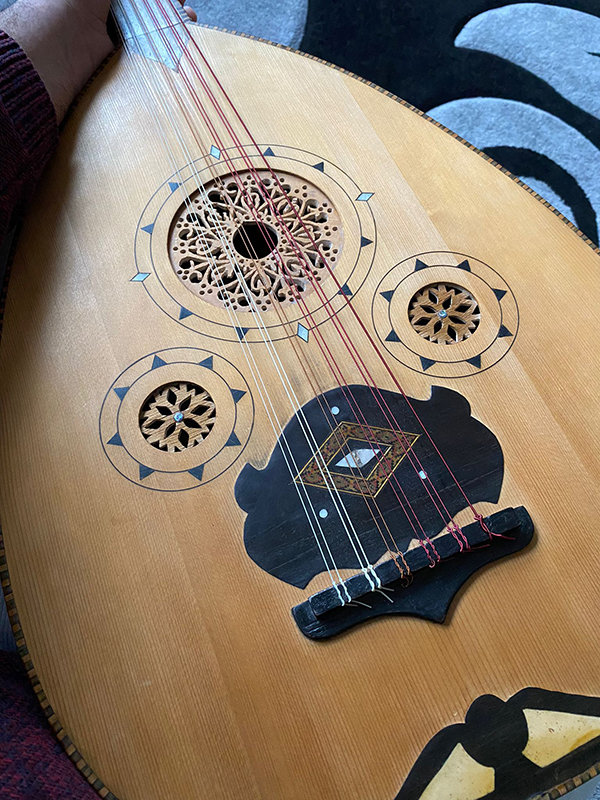By Sameer Ibrahim and Michael Seifert The Tigris and Euphrates rivers are among the largest rivers in the world and have numerous large and small tributaries. This makes Iraq one of the few countries that has a large amount of water despite its small area. The control of the rivers and the irrigation of the landscape were the decisive factors for the emergence of the first civilizations in human history in Mesopotamia. Starting in Anatolia, people settled here for the first time and developed agriculture and animal husbandry. City states and kingdoms emerged. This required the invention of writing and… Read More
Category: 992-INTEGREAT
Ticks are already lurking for victims
Ticks benefit from mild temperatures in winter. This is why the bloodsuckers are already active early this year. “There are already the first infections,” parasitologist Ute Mackenstedt from the University of Hohenheim told Südwestrundfunk (SWR). Baden-Württemberg is a tick risk area. Many people here become infected through tick bites. The parasites like to sit in tall grass, bushes, gardens or in the forest and lie in wait for their victims. Experts advise people to protect themselves from tick bites by wearing long, closed clothing and sturdy shoes. Anti-tick sprays are also available. Anyone who has been out and about in… Read More
Germans need a visa for many countries, but no longer for China
German citizens need a visa to enter some countries. This applies, for example, to India, Brazil, Australia, Saudi Arabia, Egypt, Namibia, Nepal and Vietnam. For China, however, Germans no longer need a visa for stays of up to 15 days since December 1, 2023. As the entry requirements vary depending on the destination and may be subject to current changes, it is recommended that you check the website of the Federal Foreign Office well in advance of your trip and then apply for a visa: Travel and security advice for your destination country—Federal Foreign Office (auswaertiges-amt.de) You should also check… Read More
Why February 29 exists
By Bright Igbinovia and Ute Kaiser Sabine turns 18 on February 29—even though she was born in 1952 and is actually 72 years old. How can that be? Sabine was born on a leap day—like around 5 million people worldwide, including around 55,000 in Germany. What is a leap day? This extra day is added to the month of February during a leap year. This year, February has 29 days instead of 28 and the leap year has a total of 366 days instead of 365. The starting point was the Julian calendar from 45 BC. This solar calendar was… Read More
Significant rise in first-time asylum applications
Germany was once again the main destination for refugees in the European Union in 2023. 329,120 people made an initial application for asylum here. This is an increase of 51.1 percent compared to 2022 with 217,774 first-time applications. These figures were published by the Federal Office for Migration and Refugees (BAMF) in its annual statistics. In addition to the initial applications, there were 22,795 subsequent applications. People from Syria made the most initial applications for protection in Germany with 102,930. This is followed by Turkey with 61,181, Afghanistan with 51,275, Iraq with 11,152 and Iran with 9,384 first-time applications. Applications… Read More
Studying: German exam before university
Refugees are generally allowed to study in Germany. In particular, those who have been granted asylum or have another secure residence status have good chances. “The same conditions apply to you as to other international prospective students,” says the website of the Federal Ministry of Education and Research: https://www.study-in-germany.de/de/studium-planen/besondere-lebensumstaende/studienangebote-fuer-gefluechtete/ A lot more information can also be found there. If migrants want to study at a German university, they usually have to prove that they speak German well. However, there are exceptions. If you have a good command of English, you can enrol on an international degree programme or special English-language… Read More
Narri-Narro: about the origins of carnival
By Oula Mahfouz Whether it’s Fasnet, Fasching or Carnival: the jesters are ready for their most important days of the year. The highlight of the carnival season begins on “schmotziger Donnerstag”. This year it is on February 8. In the days that follow, there are parades, children dress up and paint their faces, and some adults also hide their faces behind scary masks and slip into colorful costumes. On Ash Wednesday, February 14, it’s all over. The biggest parade in the region takes place on Sunday, February 11 in Rottenburg. The carnival tradition is firmly anchored in the Christian calendar… Read More
Law on faster deportation passed
Rejected asylum seekers are to be deported from Germany more quickly in future. After the Bundestag, the Bundesrat also approved the “Act to Improve Repatriation” at the beginning of February. This law is controversial. Various groups from human rights organizations to sea rescue are protesting against it—as well as demonstrators in Tübingen. Among other things, the law provides for criminals to be deported more quickly. As a rule, deportations will no longer be announced. Authorities have more opportunities to search—for example, for documents to determine the country of origin. Police officers are also allowed to search rooms other than the… Read More
A new law will make naturalisation easier from April
Members of the German Bundestag have made it easier to obtain German citizenship. The bill to modernise citizenship law was passed on 19 January 2024 by 382 votes to 234 with 23 abstentions. The CDU/CSU and the AfD voted against the new law. The new law is expected to come into force in April. The most important changes at a glance: The period of residence in Germany required for naturalisation will be reduced from the current eight to five years. In the case of “special integration achievements”, naturalisation will be possible after just three years—for example in the case of… Read More
About the millennia-old musical tradition of the Arabic oud
By Sameer Ibrahim The oud is a short-necked lute that is considered one of the most important musical instruments in the Arab world. The oldest depiction of an oud can be found on an ivory vessel from Córdoba in Andalusia, Spain, dated to the year 868. Preliminary forms of the instrument already existed in Mesopotamia during the Akkadian period around 2350 B.C. Similar instruments were also used in ancient Persian and Syrian culture. The musician and “singer with the sweet voice”, Ziryab (789-857), came from Baghdad to Andalusia and founded the world’s first music school in Córdoba. He is said… Read More










